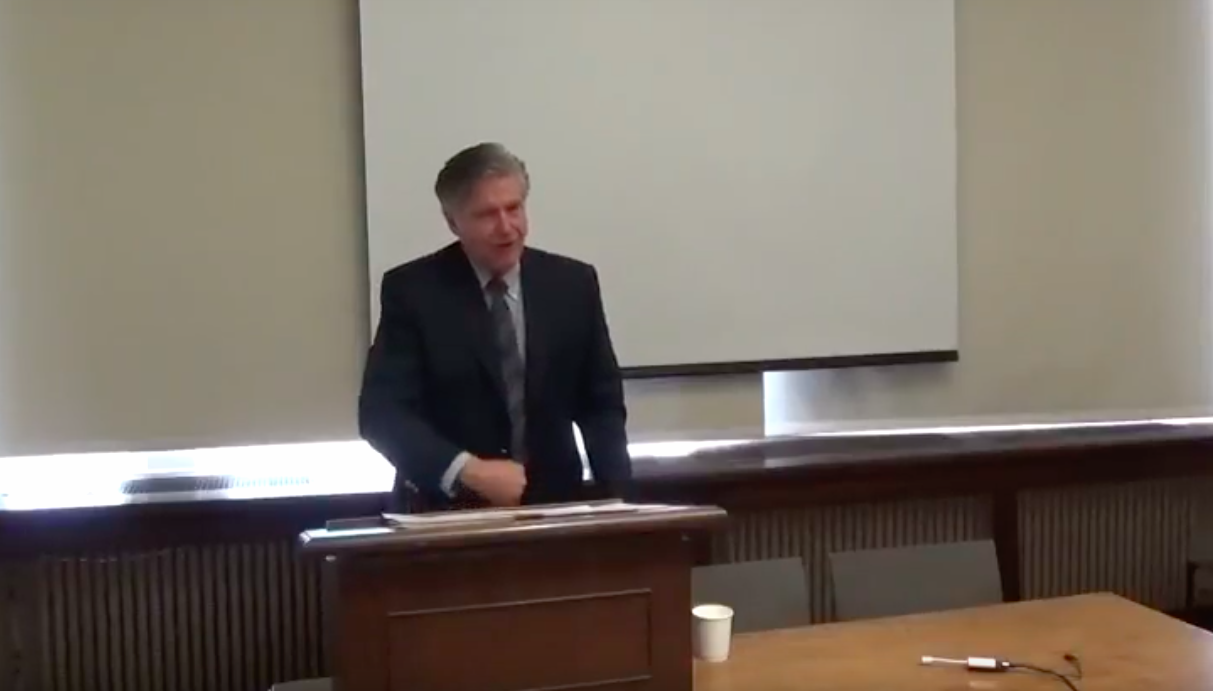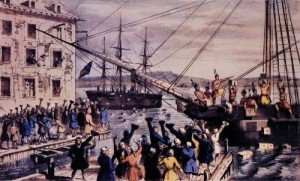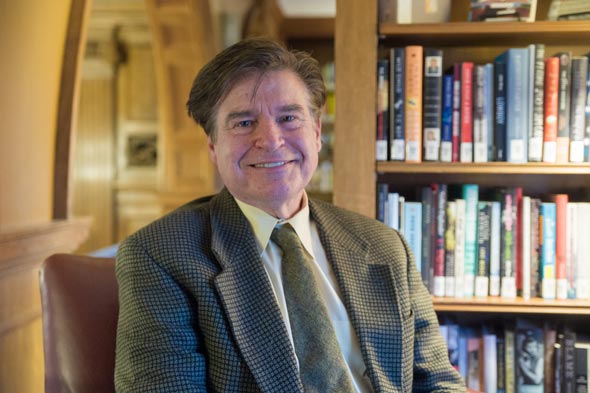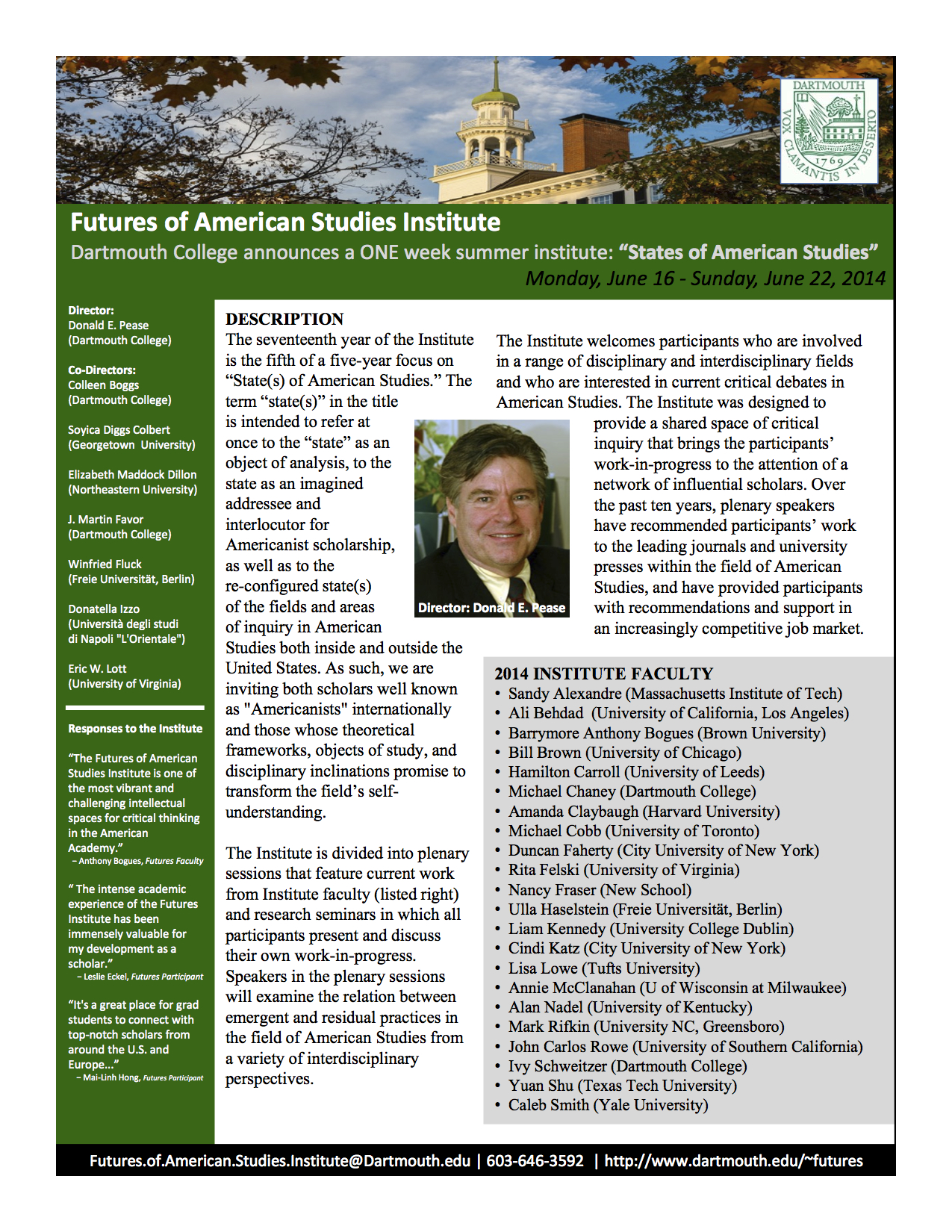From the 2012 Carl Bode-Norman Holmes Pearson Prize for Outstanding Contributions to American Studies, Don Pease’s new provocative essay analyzes the recent populist conservatism in terms of the disparate fantasies convoking its disparate constituencies.
Search results for: “don pease”
-
Don Pease — "Futures of American Studies"
The world-famous course of lectures and seminars begins again this summer. Here is the Institute’s Schedule. Don Pease, the Institute’s director, will be delivering his lecture, “Between the Camp and the Commons.”
-
The American Dream Debate — Don Pease at the Oxford Union
Here is the video of those debates, with Don continuing his long meditations on America and President Obama.
-
Don Pease Awarded the degree of Doctor of Philosophy honoris causa
Congratulations to Don!In recognition of his scholarly achievements, the Faculty of Languages at Uppsala University will confer the degree in a ceremony on January 29, 2011.
-

Donald E. Pease: The Cultural Fantasy-Work of Neoliberalism
Donald E. Pease’s talk, “The Cultural Fantasy-Work of Neoliberalism” is now online! Pease gave this talk at b2’s conference, Neoliberalism, Its Ontology and Genealogy: The Work and Context of Philip Mirowski, at the University of Pittsburgh on March 18, 2017.
Political commentators have adopted contradictory interpretive frames – the end of neoliberalism tout court, the end of progressive neo-liberalism, the emergence of quintessential neo-liberalism, the continuation of neo-liberalism by populist, or fascist, or ethno-nationalist means – to describe the significance of Donald Trump’s election. In his talk, Pease borrows conceptual metaphors and quasi-juridical criteria from Philip Mirowski’s Never Let a Serious Crisis get to Waste: How Neoliberalism Survived the Financial Meltdown to sort out and critically evaluate these sundry accounts.
Donald E. Pease is a Professor of English and Comparative Literature at Dartmouth, where he is also the Ted and Helen Geisel Third Century Professor in the Humanities. He is an authority on 19th- and 20th- century American literature and literary theory and founder/director of the Futures of American Studies Institute. He has written numerous books, including most recently Theodor Seuss Geisel (2010), and over 100 articles on figures in American and British literature. He is editor of The New Americanist series, which has transformed the field of American Studies.
-
Donald E. Pease — Wins the top award from the ASA — Congratulations!
The Carl Bode-Norman Holmes Pearson Prize honors lifetime achievement
in and contribution to the field of American Studies. Each year’s
prize committee is instructed to consider afresh the meaning of a
“lifetime contribution to American Studies.” The definitions of terms
like “contribution” and even of “American Studies” remain open,
healthily contested, and thus renewed.The 2012 prizewinner is Donald Pease, Dartmouth College.
-
Donald Pease–Echoes of Bercovitch in the Obama Inaugural
As I was listening to Barack Obama’s Inaugural Address this past Tuesday, it occurred to me that its rhetoric might serve as a textbook example of what Sacvan Bercovitch famously called an American Jeremiad. Obama urged his listeners to imagine themselves in a wintry campsite in the year of America’s birth, in the coldest of months, when the outcome of the American Revolution was very much in doubt so that they might understand the lasting importance of the following epistle that George Washington, the nation’s founding father, ordered be read to all the troops: “Let it be told to the future world … that in the depth of winter, when nothing but hope and virtue could survive … that the city and the country, alarmed at one common danger, came forth to meet [it].” This passage included the core ingredients of the American Jeremiad. In it Obama urged his listeners to embrace the ethos of the American revolution so that they might turn away from the course of corporate greed and political corruption that brought America to one of its darkest hours. Obama then enjoined his listeners to rededicate themselves to the nation’s founding principles so that they might renew what America had been and will be.
From the beginning of his scholarly career Bercovitch has persuasively demonstrated how orations like Obama’s were constructed out of a set of emulable rhetorical conventions that ratified the continuation of the already constituted order of things. On January 20,2009, Barack Obama did urge all Americans to rededicate themselves to the nation’s constituting principles in a rhetoric that reaffirmed the political order constituted out of those principles. But what marked this address anomalous to the American Jeremiad was revealed in its having in fact effected a transformative change in the order of things. In the remarks that follow I’ll attempt to explain why Obama’s address forged an exception to the ruling norms of the American Jeremiad by briefly reflecting on the genealogy and provenance of Bercovitch’s brilliant interpretation of American literary and political culture.
In his first book, The Puritan Origins of the American Self, Bercovitch explained how the Puritans transported the seat of empire from the old world to the new; how their 18th century heirs strategically changed the meaning of newness from a sign of the colonial status of dependency to the assertion at first of political uniqueness and later of moral superiority; and how, in the name of this complex sense of the new, the nation’s founders imagined that the virgin land had itself authorized an imperial summons to conquest and expansion. Bercovitch’s benchmark work, The American Jeremiad, convincingly demonstrated how the very terms through which American political leaders expressed their dissent indirectly ratified the society’s most cherished ideals. In explicating the characteristic literary strategy of Nathaniel Hawthorne as involving the intrication of demands for radical social change within structures of political continuity, Bercovitch’s The A-Politics of the Scarlet Letter provided a concrete example of this deeply entrenched cultural dynamic. Unlike his precursors, Bercovitch interpreted Hawthorne’s art of moral ambiguation as complicitous with a more pervasive cultural ritual that ratified embedded structures of political assent.
With the publication of The Rites of Assent Bercovitch extended the reach of this analytic framework to American Studies scholarship. Upon remarking the ways in which the analytic tools of American studies consisted of the same structures-patterns of thought, myth and language-that americanist scholars had set out to investigate, Bercovitch correlated americanists’ “rituals” of dissent with more encompassing forces of social integration in American society. With this expansion of the dominion of his paradigm, Bercovitch rejected in advance any possible grounds for the conversion of dissent (whether expressed implicitly by literary works or explicitly by political groups) into the bases for actual social change. American ideology refutes and absorbs subversive cultural energies, Bercovitch cogently observed, “harnessing discontent to the social enterprise” by drawing out protest and turning it into a rite of ideological assent.1 I criticized Bercovitch’s inability to explain the historically verifiable instances of social change that took place during the American Renaissance in Visionary Compacts: American Renaissance Writings in Cultural Context. In their debates over the highly charged issues of expansionism, the national bank, slavery, and secession, American politicians and writers deployed the rhetoric of the American jeremiad to support utterly incompatible causes. When representatives of each of these factions used the American Jeremiad to give hortatory expression to their uncompromising views on these matters, they deprived the Jeremiad of its power to reinstitute an encompassing rite of assent.
But my critique did not detract from the profound insight underpinning Bercovitch ‘s project. Like John Rawls, Bercovitch recognized that as a liberal political society, the United States promoted civic harmony through the exchange of conflicting opinions among individuals who presupposed a shared and overlapping consensus about the nature of political liberalism. Unlike Bercovitch, however, this Rawls invoked this insight to introduce an exception to liberal orthodoxies. According to Rawls, political liberalism could not acknowledge the absolute truth value of any one political position, but only the relative values of positions to which it was reasonable either to assent or to dissent.
It was Rawls’s view that political liberalism could not admit a position that was founded upon an absolute truth claim without violating the asssumptions of the liberal political sphere as such. When he arrived at this formulation, Rawls was also conducting a tacit dialogue with Carl Schmitt. In The Concept of the Political, Schmitt had maintained that, in fostering a notion of politics as the noncoercive exchange of more or less equivalent political positions, political liberalism had to remain blind to the defining trait of the political sphere. Schmitt defined that foundational trait as the irreconcilable antagonism between political friends and political enemies. Political liberalism could not permit an irreconcilable opposition between friend and enemy to appear within the political sphere without losing its essential attribute, the recognition of the formal equivalence of all political positions. If the liberal state required the homogeneity of the political sphere for its stability, it could only achieve that stability by prohibiting what Carl Schmitt meant by politics.
These observations led Schmitt to the conclusion that if the liberal state did not represent at least one political disposition as an enemy to the field of liberal politics as such, that field would remain vulnerable to becoming violently disrupted by the appearance within it of political discourses that were predicated on the friend-enemy distinction that it had foreclosed. During the cold war the national security state turned Schmitt’s insight into the rationale for changing the rules of the entire political order. At its outset, the US government replaced the liberal state with the national security state, by declaring the totalizing truth claims of marxian Communism an exception to the rules of the liberal political order as such.
In turning Communism into an exception to the rule of political inclusiveness, the cold war state also shifted the terrain of political conflict from the internal domestic affairs of the nation-state to the international arena, where the conflict over fundamental political values was understood to be the matter of a conflict between utterly different imperial state formations. The national security state thereby enabled US political society to remain substantively homogeneous and yet open to a range of poli
tical positions and heterogeneous populations through this construction of an exception to its rules of democratic inclusiveness.Bercovitch’s paradigm accurately described the obsessive cultural rituals though which cold war ideology celebrated the proliferation of political dissent as an example of what rendered the United States the leader of the free world. But like the cold war ideology it reflected, Bercovitch’s paradigm presupposed that absolutist views and foundational truth claims would always be excluded from liberal political society. Bercovitch’s account of American Jeremiad lost some of its explanatory reach in the wake of the cold war when evangelical Christians, market fundamentalists, pro life activists and paramilitary groups declared their irreconcilable opposition to their political enemies. The absolutist claims and fundamentalist values that these groups introduced into the liberal political sphere violated what Rawls and Bercovitch described as its foundational assumptions.
President George W. Bush abrogated the assumptions formative of the liberal political sphere in their entirety in 2001 when he declared a State of Exception to the constitutional order so as to exercise the extra-legal powers necessary to conduct a global war on terror. While the war supplied the occasion for the state to enact extra-constitutional, illegal violence, it also rendered the sites at which the state exercised this violence vulnerable to being declared unconstitutional.
The Bush State of Exception imposed severe limitations on the people’s constitutional rights. It was at the site of those imposed limitations that Barack Obama inaugurated a presidential campaign that was indistinguishable from a constitutional movement. His campaign turned on the American people’s right not merely to question or dissent from the State of Exception but to displace it altogether with a reaffirmation of the nation’s constituting principles. That’s why his reassertion of the constitutional principles of liberty and equality were transformative rather than reactionary. When Barack Obama, who represented members of the US polity who had been denied entitlement to them, rededicated the entire nation to its constituting principles, “We the People” had not performed a rite of assent but a successful overthrow of an unconstitutional order.
I recommend reading the address through the lens of Bercovitch’s theory of American Jeremiad to recognize what was truly transformative about this moment.
-

Futures of American Studies Institute: States of American Studies
Don Pease and The Futures of American Studies Institute readies for the summer institute from June 16-22:
The seventeenth year of the Institute is the fifth of a five-year focus on “State(s) of American Studies.” The term “state(s)” in the title is intended to refer at once to the “state” as an object of analysis, to the state as an imagined addressee and interlocutor for Americanist scholarship, as well as to the re-configured state(s) of the fields and areas of inquiry in American Studies both inside and outside the United States. As such, we are inviting both scholars well known as “Americanists” internationally and those whose theoretical frameworks, objects of study, and disciplinary inclinations promise to transform the field’s self- understanding.
Hit the jump for details.




